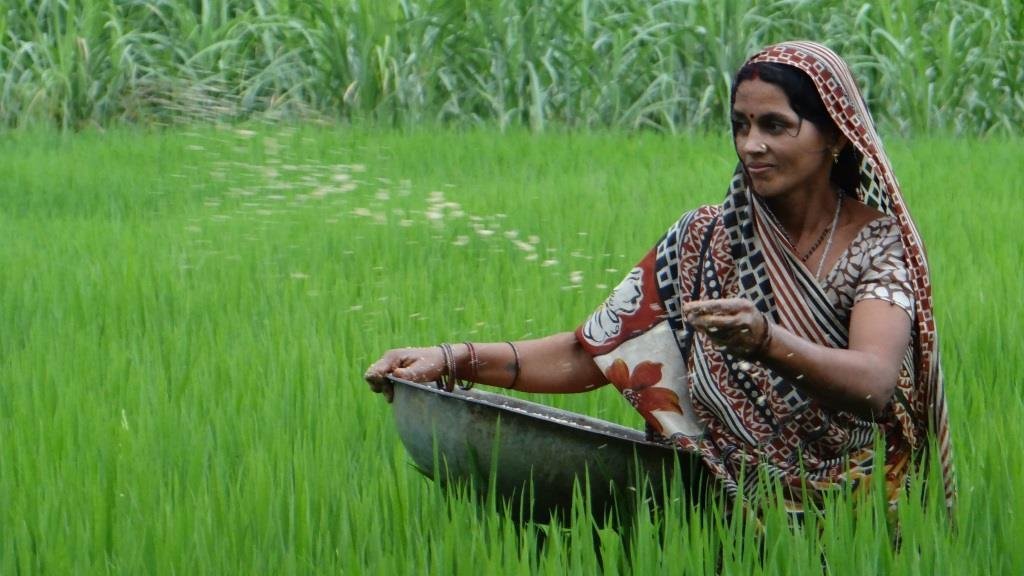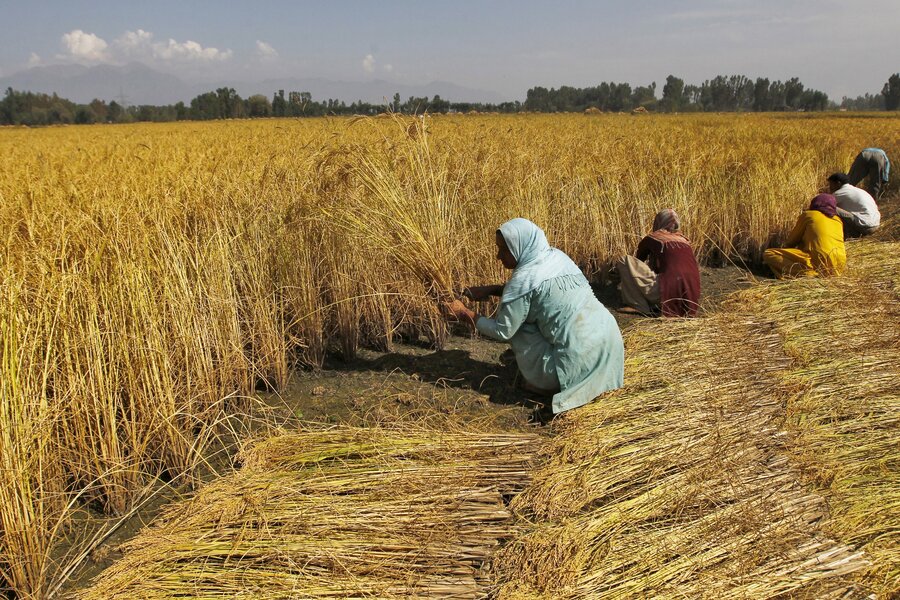INDIAN AGRI-TECH INVESTMENTS COULD GENERATE €720.5 BILLION, REPORT INDICATES
Investments in agri-tech could help India to generate $813 billion (€720.5 billion) in revenue from agriculture, according to a new report.
Titled “Investing for Impact: Food, Agri and Agri-tech”, the report from an Indian organisation, Aspire Circle, indicates that the sector could create as many as 152 million jobs.
The windfall could arrive if agri-tech investments of $272 billion (€241.1 billion) are made by 2030, the report suggests.
Shortly before Christmas, Aspire Circle held a webinar with people involved in the sector to discuss the top 10 for-profit business ideas in the food, agri-tech and agricultural sectors.
Investments in areas such as the bio-fortification of seeds and in product innovations around ready-to-eat foods are among those that could help to increase the revenue generated by the sector, Aspire Impact suggested.
“With smart innovations, infrastructure and policy support and newer business models, the top 10 ideas … can attract $272 billion in investments and generate $813 billion in revenue, impacting 1.1 billion lives,” Amit Bhatia, Aspire Circle’s founder, said in a statement.
Until now, investments in agri-tech, at least from outside India, have been well below the rates that the report suggests could take place.

In the past decade, India’s agricultural sector has attracted $9 billion (€8.0 billion) in foreign direct investment, according to Bhatia. The organisation said there was untapped potential to be realised.
Aspire Circle said that investments in agri-tech and related sectors could have a significant effect on India’s food security and on the sustainability of its farming industry.
As its population grows and affluence increases, India is likely to see significant increases in the demand for food.
“Estimates suggest that India will overtake China as the world’s most populous country by 2027,” the organisation said in an online briefing document.
“While India’s population is projected to grow at the compounded annual growth rate (CAGR) of 2%, demand for key food grains is expected to grow at a CAGR of 3%.”
The country needs, Aspire Circle said, to focus more on increasing its per-unit productivity – something that agri-tech investments could help with – while ensuring that the agricultural sector remains sustainable.
“This was emphasised at the 26th Conference of the Parties (COP26) of the United Nations Framework Convention on Climate Change, at which 27 global economies made new commitments to make their agricultural practices more sustainable and less polluting, and to invest in the science needed for sustainable agriculture and for protecting food supplies against climate change,” Aspire Circle said.
The organisation said hunger and malnutrition were key areas where investments in food, agri-tech and related sectors could provide benefits.

Aspire Circle noted that India has slipped to 101st out of 116 countries in the Global Hunger Index this year, compared to 94th in 2020. As a result there is an “urgency” to change India’s “nutritional policy”.
India’s agricultural sector is “one of the critical components” of the country’s economy, being worth $414 billion (€367.0) in 2019-20.
India is the fourth-largest producer of agrochemicals in the world and accounts for nearly a third of global tractor output.
Globally, demand for food is expected to increase by as much as 98% by 2050, driven in part by increases in the world’s population.
To help meet this demand, agricultural production by that time will have to be 50% higher than it was in 2012, according to the organisation.
Founded in 2007, Aspire Circle describes itself as promoting “enlightened social leadership” and has fellowships, scholarships and internships as part of its efforts to “catalyse India’s leadership capabilities in social impact”.
Among the various issues it promotes are clean air, technology to support micro-entrepreneurship and the creation of investment ideas to help “unlock private capital for public good”.
In other Indian agriculture news, Sial Paris Newsroom reported earlier this year that India as pressing the EU to loosen its rules on pesticide residues in the hope that this would assist rice exporters.
Join us at SIAL Paris as exhibitor Join us at SIAL Paris as visitor
